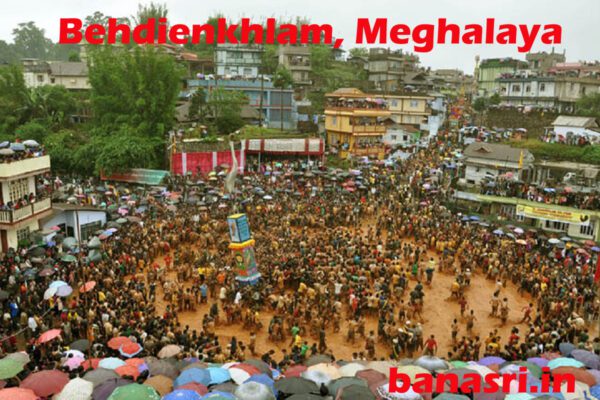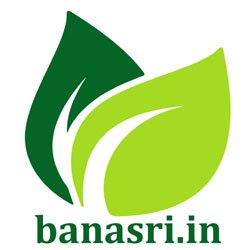
Behdienkhlam Festival, Meghalaya: A Vibrant Celebration of Harvest and Community Spirit
Introduction
The Behdienkhlam Festival is one of the most significant and colorful festivals celebrated in the northeastern state of Meghalaya, India. Primarily observed by the Pnar tribe of the Jaintia Hills, this festival is a blend of religious rituals, community gatherings, and cultural performances. It is celebrated with great fervor and enthusiasm, marking the end of the sowing season and praying for a bountiful harvest.
Timing of the Festival
- When: The Behdienkhlam Festival is celebrated annually in the month of July.
- Significance: The festival is held to invoke the blessings of the gods for a good harvest and to drive away plagues and evil spirits.
Locality of the Festival
- Where: The main celebrations take place in Jowai, the district headquarters of the West Jaintia Hills district in Meghalaya.
- Communities Involved: The festival is primarily celebrated by the Pnar (or Jaintia) community, but it attracts visitors and participants from various parts of Meghalaya and beyond.
Nature of the Festival
- Type: Behdienkhlam is a religious and cultural festival involving traditional rituals, dances, and communal activities.
- Essence: The festival aims to purify the community, ensure a good harvest, and strengthen social bonds.
Highlights of the Behdienkhlam Festival
Ritualistic Celebrations
- Niam-Tre Belief System:
- Rituals: The festival is deeply rooted in the Niam-Tre religion, the traditional faith of the Pnar people.
- Significance: Various rituals are performed to appease the deities and spirits, seeking protection and blessings.
- Specialty: Rituals include offerings and sacrifices made to deities, symbolizing the community’s devotion and faith.
Khnong Blai and Sacred Tree Logs
- Sacred Tree Logs:
- Event: Large, decorated tree trunks known as “Khnong Blai” are carried by men and dragged through the streets.
- Symbolism: These logs symbolize the driving away of evil spirits and pestilence.
- Specialty: The transportation and procession of these logs are accompanied by traditional music and chants, creating a vibrant and energetic atmosphere.
- Maidong Knin:
- Ritual: In a significant ritual called “Maidong Knin,” men compete to balance themselves on large, slippery logs in the river.
- Importance: This ritual is believed to symbolize strength and agility, and it is an exciting spectacle for spectators.
- Specialty: The event fosters community spirit and showcases traditional skills and customs.
Cultural Performances and Dances
- Traditional Dances:
- Performances: The festival features traditional Pnar dances, performed in vibrant costumes.
- Significance: These dances depict stories from folklore and mythology, celebrating the community’s heritage.
- Specialty: The dances are accompanied by traditional music played on drums and flutes, creating a lively and festive ambiance.
- Music and Songs:
- Music: Traditional songs and music are integral to the celebrations, with themes revolving around nature, spirituality, and communal life.
- Importance: The music enhances the festive mood and provides a rhythmic backdrop to the various rituals and dances.
- Specialty: The use of indigenous instruments and melodic tunes adds a unique cultural flavor to the festival.
Communal Feasts and Gatherings
- Feasting:
- Event: Communal feasts are an essential part of the festival, where people come together to share meals.
- Significance: These feasts symbolize unity and togetherness, fostering a sense of community.
- Specialty: Traditional Pnar cuisine is prepared and shared, highlighting the culinary heritage of the community.
- Social Gatherings:
- Gatherings: The festival provides an opportunity for social gatherings and interactions among community members.
- Importance: These gatherings strengthen social bonds and promote communal harmony.
- Specialty: The communal activities and shared experiences create lasting memories and reinforce the cultural identity of the Pnar people.
Specialty of Behdienkhlam Festival
- Cultural Significance: The festival is a vibrant display of the Pnar community’s cultural heritage, showcasing traditional rituals, dances, and music.
- Religious Aspects: It involves deep-rooted religious rituals and ceremonies aimed at purifying the community and invoking divine blessings.
- Community Bonding: Behdienkhlam fosters a strong sense of community and togetherness, as people come together to participate in the celebrations and rituals.
- Tourist Attraction: The festival attracts tourists and visitors, offering them a unique insight into the rich cultural and religious traditions of Meghalaya.
Conclusion
The Behdienkhlam Festival of Meghalaya is a unique and spiritually enriching celebration that combines religious devotion, cultural performances, and communal activities. Held in the picturesque Jowai town, the festival not only seeks divine blessings for a bountiful harvest but also strengthens the social fabric of the Pnar community. Through its vibrant rituals, dances, and communal gatherings, Behdienkhlam provides a platform for cultural exchange and preservation, making it a truly unforgettable experience for all who attend.
